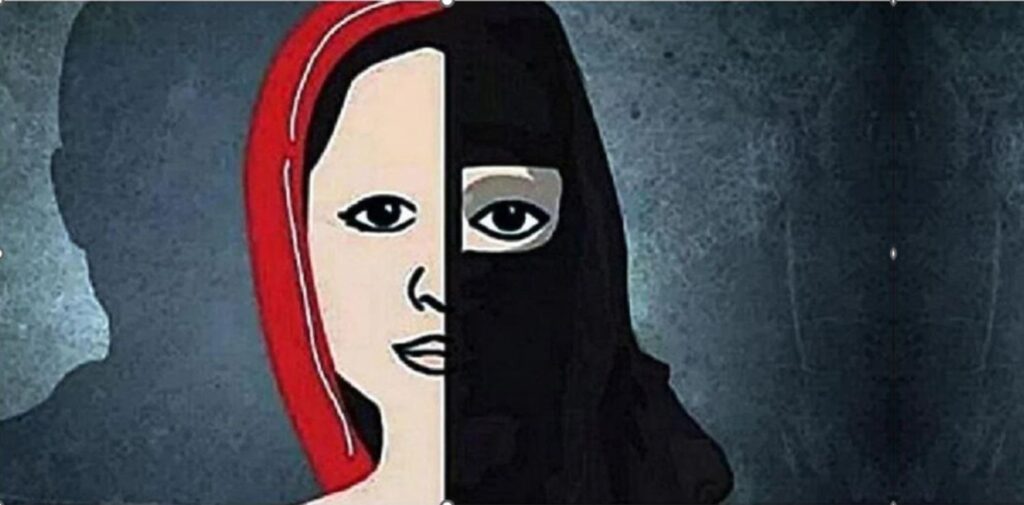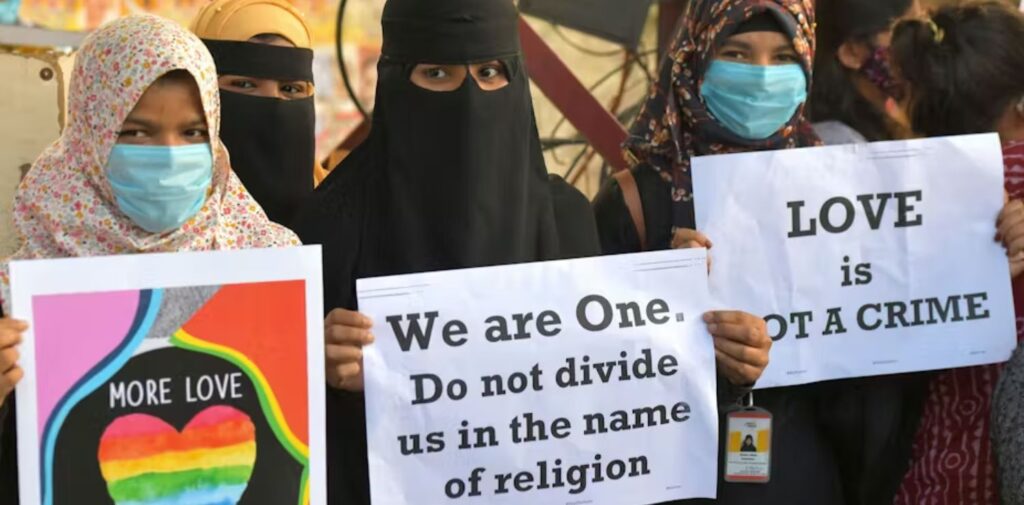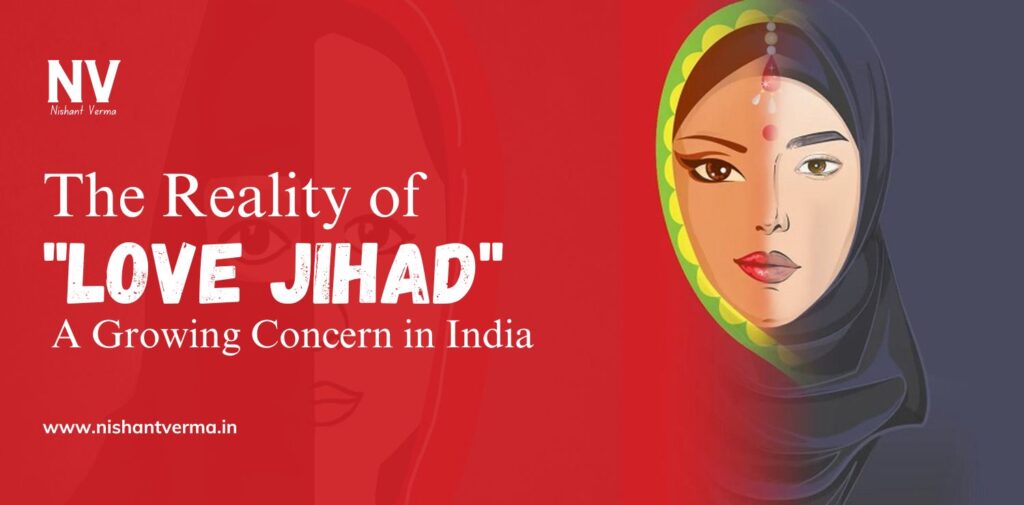In recent years, the term “Love Jihad” has become a highly contentious issue in India, sparking debates, protests, and even legal battles. The term is used to describe an alleged phenomenon where Muslim men purportedly lure Hindu women into relationships under false pretenses, often with the intent of converting them to Islam. This narrative has led to the enactment of stringent laws in certain states, and the most recent judgments from the Uttar Pradesh courts have reignited the controversy surrounding the topic.

What is Love Jihad?
“Love Jihad” is not a legally recognized term but a socio-political concept that has gained traction in certain parts of India. The term suggests a deliberate strategy to target women from the Hindu community through romantic relationships, with the ultimate goal of religious conversion. Proponents of the concept argue that this is a systematic form of demographic warfare aimed at altering India’s social and cultural fabric. While many believe this phenomenon is real, others dismiss it as a myth fueled by communal politics.
Recent Legal Developments
In a landmark decision, the Bareilly district court in Uttar Pradesh sentenced a 25-year-old Muslim man, Mohammad Alim, to life imprisonment for “Love Jihad,” citing illegal conversion, rape, and misrepresentation of identity as grounds for the judgment. The court’s ruling stated that this act was not an isolated incident but part of a larger conspiracy aimed at targeting Hindu women, making it a serious threat to national unity and societal harmony.

The court’s judgment was explicit in describing “Love Jihad” as a form of demographic warfare that could potentially destabilize the nation’s integrity. It went on to highlight that such cases are not just individual acts of crime but are systematically orchestrated to create social divisions and promote religious conversions under the guise of love.
Impact of the Judgment and Societal Reactions
The ruling has garnered widespread attention, both in support and opposition. On one hand, it is hailed as a decisive step to curb illegal conversions and protect vulnerable communities. On the other hand, critics argue that such judgments can perpetuate communal tensions, infringing on personal freedoms and human rights.
The court’s ruling also emphasized the need for legislative action to prevent such incidents. It pointed to the Uttar Pradesh Prohibition of Unlawful Religious Conversion Act, 2021, which was enacted specifically to address cases of forced or fraudulent conversions. Under this law, anyone found guilty of converting someone through deceit, coercion, or false promises can face severe penalties, including life imprisonment.
The Legal and Ethical Concerns
While the concept may have some backing in the legal framework of certain states, it poses significant ethical and legal questions. The Constitution of India guarantees every citizen the right to freedom of religion and personal choice. Thus, laws targeting interfaith marriages and conversions could be viewed as infringing upon these constitutional rights.
In its judgment, the Uttar Pradesh court suggested that illegal conversions, especially under the guise of marriage, threaten national unity by creating conditions similar to those in Pakistan and Bangladesh. It also hinted at a potential foreign influence and funding behind such activities, further complicating the matter and making it a national security issue rather than just a local or religious concern.
The Need for Awareness and Caution
Given the recent legal developments and the controversial nature of “Love Jihad,” it is imperative to approach this issue with caution. While it is important to address any illegal activities and protect individuals from being manipulated or coerced, it is equally crucial to ensure that personal freedoms and human rights are not compromised.

Young individuals and families need to be aware of the potential dangers of falling into such traps. Educating people about the legal consequences and ensuring they have access to support systems can help mitigate the risks associated with such scenarios. This is not just a matter of religion but of safeguarding individuals’ right to choose their life partners freely without any external pressures or deceit.
Conclusion: Balancing Safety and Freedom
The controversy surrounding “Love Jihad” in India highlights the need for a balanced approach. While it is necessary to tackle illegal conversions and ensure that no one is coerced or manipulated, it is equally important to uphold the fundamental rights of every individual to choose their own faith and partner. The recent court rulings and the subsequent discussions point to a complex interplay of law, religion, and personal freedom, which must be handled with sensitivity and fairness.
As this issue continues to unfold, it is essential for society to maintain vigilance without succumbing to divisive narratives. Promoting interfaith harmony and understanding, alongside strict legal action against fraudulent activities, can pave the way for a more inclusive and unified society.




